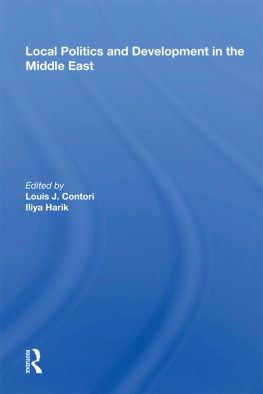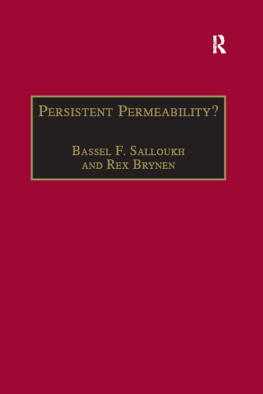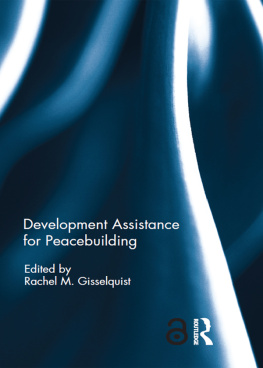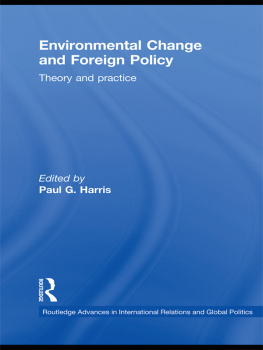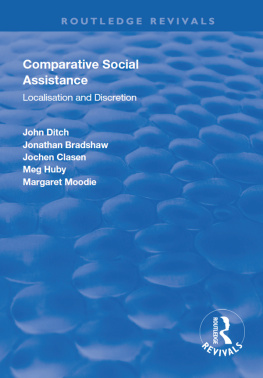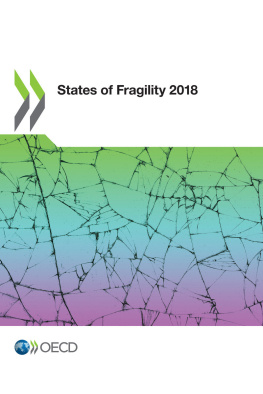Local Politics and Development in the Middle East
Also of Interest
The Problems of Arab Eaonomia Development and Integration, edited by Adda Guecioueur
Industrial Progress in Small Oil-Exporting Countries: The Prospect for Kuwait, edited by Maurice Girgis
Migration, Mechanization, and the Agricultural Labor Market in Egypt, edited by Alan Richards and Philip L. Martin
Arab Aid to Sub-Saharan Africa, Pamela M. Mertz arid Robert A. Mertz
*Political Behavior in the Arab States , edited by Tawfic E. Farah
* Religion and Politics in the Middle East, edited by Michael Curtis
*Rich and Poor States in the Middle East: Egypt and the New Arab Order, edited by Malcolm Kerr and El Sayed Yassin
The New Arab Social Order: A Study of the Social Impact of Oil Wealth, Saad Eddin Ibrahim
*A Concise History of the Middle East, Second Edition, Revised and Updated, Arthur Goldschmidt, Jr.
Women and Revolution in Iran, edited by Guity Nashat
Imlil: A Moroccan Mountain Community in Change, James A. Miller
PROFILES OF THE CONTEMPORARY MIDDLE EAST:
South Yemen: A Marxist Republic in Arabia } Robert W. Stookey
*Syria: Modern State in an Ancient Land, John F. Devlin
* Jordan: Crossroads of Middle Eastern Events, Peter Gubser
*The Republic of Lebanon: Nation in Jeopardy, David C. Gordon
*Available in hardcover and paperback.
Westview Special Studies on the Middle East
Local Politics and Development in the Middle East
Edited by Louis J. Cantori and lliya Harik
Although development at the local level is a primary goal of most assistance schemes, most development agencies and banks know little of politics at the local level in developing countries. As a result, assistance programs generally lack relevance to indigenous populations and are--at the community level--viewed as being controlled from the "outside."
The authors of this book concentrate on how local politics influence development in the Middle East, with the intent of encouraging more appropriate--and thus more effective--assistance programs. They discuss general policy issues and the nature of center-periphery relations in Middle East countries and delve into specific problems encountered in Egypt, Jordan, Lebanon, Syria, Iraq, Turkey, Tunisia, and North Yemen, showing how information about local political schemes can aid administrators of development programs in providing assistance that is acceptable--and accepted--at the local level. The case studies provide a broad base for planning, encompassing capitalist, state capitalist, and socialist systems in both rural and urban settings.
Louis J. Cantori is chairman of the Department of Political Science at the University of Maryland, Baltimore County. Iliya Harik is professor of political science and director of the Center for Middle Eastern Studies, Indiana University.
Local Politics and Development in the Middle East
Edited by Louis J. Cantori
and Iliya Harik
First published 1984 by Westview Press
Published 2018 by Routledge
52 Vanderbilt Avenue, New York, NY 10017
2 Park Square, Milton Park, Abingdon, Oxon OX14 4RN
Routledge is an imprint of the Taylor & Francis Group, an informa business
Copyright 1984 by Taylor & Francis
All rights reserved. No part of this book may be reprinted or reproduced or utilised in any form or by any electronic, mechanical, or other means, now known or hereafter invented, including photocopying and recording, or in any information storage or retrieval system, without permission in writing from the publishers.
Notice:
Product or corporate names may be trademarks or registered trademarks, and are used only for identification and explanation without intent to infringe.
Library of Congress Catalog Card Number: 84-50188
ISBN 13: 978-0-367-01875-7(hbk)
To the members of the Committee for the
Comparative Study of New Nations,
University of Chicago, who stimulated
our thinking on things local
The papers in this volume are the product of a conference organized jointly by Indiana University and the University of Maryland, Baltimore County, and held at Donaldson Brown Conference Center, Port Deposit, Maryland. It appears slightly more than a decade after a similar conference was held at Indiana University to discuss the nature of change in rural areas of the Middle East and North Africa, the proceedings of which have since appeared in a volume edited by Richard Antoun and Iliya Harik. The present volume is not intended as an effort to bring us up to date on developments that have occurred since the first conference was held, but to open a new chapter.
At the time the first Indiana conference was held, we were in great need of understanding the nature of rural society and the changes which it was underyoing. We were then involved in a diagnostic effort: What are the characteristics of the rural community and why was it changing? New literature has appeared since and enriched our library with a wealth of material on local societies in general and rural communities in particular.
The new undertaking had for an objective the examination of the impact of change-oriented policies. At the time the first conference was held policy studies with a local focus were still in their infancy as far as the Middle East area was concerned. The Port Deposit Conference sought to draw more attention to the importance of policy studies in the development process and to encourage research in that line.
For three days, scholars from various parts of the world met in one assembly to discuss their research and findings on local development strategies and assessing policy impact. Papers included a vast array of topics including research agendas and some blue prints for development strategies. However, it was decided by the editors that only the case studies should be included in this volume in order to preserve unity of treatment and coherence in the volume as a whole. Moreover, including all the papers would have made the volume much too large for our purposes. The price we paid for excluding valuable contributions made at the conference, we hope to compensate for by maintaining the coherence of the volume as a unit.
Many people have contributed at various stages to making the conference and subsequently the volume possible. They include institutions and individuals. As organizers of the conference and editors of the volume, we would like to thank Indiana University and the University of Maryland, Baltimore County,for their support. Also the Agency for International Development deserves extension of special thanks for providing our two universities with a conference grant. None of the above mentioned institutions, however, are responsible for what is in this volume. Individual authors bear the exclusive responsibility for what has appeared in their contributions.
Many individuals participated in the conference and contributed significantly to making it a success. We wish to acknowledge therefore appreciation to Milton Esman, Cornell University; Ernest Grigg, Save the Children Federation; James Dalton, Near East Bureau of AID; Khalid Ikram, The World Bank; Amal Rassam, Queens College; Robert Fernea, University of Texas at Austin; Dale Eikelman, New York University; Sayid Yasin of the Ahram Center for Political and Strategic Studies, Cairo; John Waterbury, Princeton University; Michael Hudson, Georgetown University; Robert Webb, Acting Vice Chancellor and presently Chairman, Department of History, University of Maryland, Baltimore County; Joseph Wheeler, Assistant Administrator, Near East Bureau, AID; Fredj Stambouli, University of Tunis; and Linda Schatkowski-Schilcher, Institut fur Europaische Geschichte, Mainz, W. Germany. The editors wish to thank Nicholas Hopkins, American University in Cairo, for his able assistance in editing some of the contributions.

